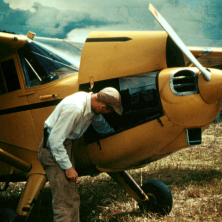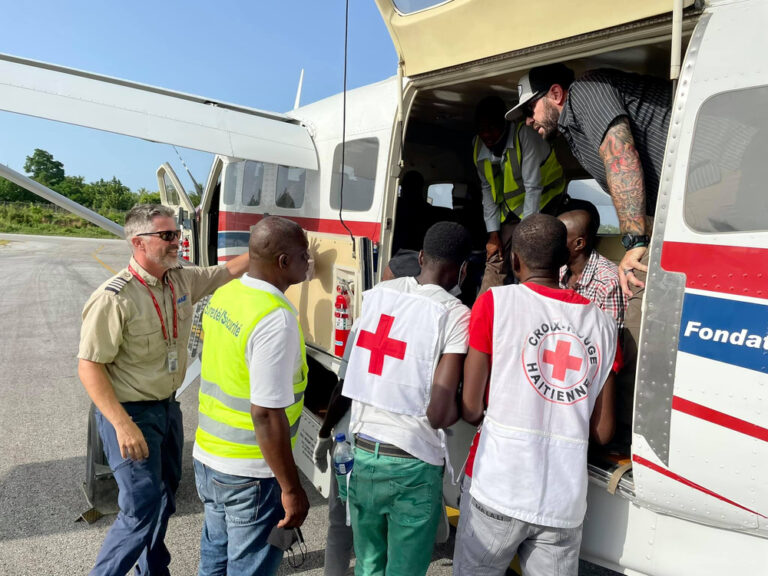
This post is part of a series of blog posts describing a training flight that a new MAF staff person tagged along on. These training flights help prepare MAF pilots for their field assignments overseas. Past posts include How To Convince Yourself It’s Safe To Fly, MAF’s Delicious Landing Procedures, and Preparing For Takeoff.
 “MAYDAY! MAYDAY! Engine failure! Three souls on board!”
“MAYDAY! MAYDAY! Engine failure! Three souls on board!”
The canyon walls rose around us as the plane dipped sharply. It looked as if I could reach out and scrape the rocks on either side of the plane with my knuckles—the same knuckles that were currently gripping the seatbelt as my stomach rose to my throat.
Earlier that morning we took off from the Nampa airport, adjacent to the MAF headquarters. It was a crisp, autumn morning and the Treasure Valley stretched out beneath us—bordered by the foothills of the Rockies to the north and the Owyhees to the south. The mountains rose to meet us as we crossed the Snake River.
“We are going to practice a ridge crossing,” said MAF Chief Pilot Brian Shepson into the headset as the Cessna approached a 6500 foot peak.
 Flying through mountains can be dangerous, which is why MAF equips its pilots with procedures to increase situational awareness. One of these procedures is a “ridge crossing.” When approaching a mountain ridge or other terrain that might obscure vision, a pilot brings the plane to the edge of the ridge so he can see what lies beyond before circling back to make a second approach. This prevents the pilot from crossing a ridge blindly and unexpectedly flying into a taller mountain or other obstruction that could be hidden by the ridge.
Flying through mountains can be dangerous, which is why MAF equips its pilots with procedures to increase situational awareness. One of these procedures is a “ridge crossing.” When approaching a mountain ridge or other terrain that might obscure vision, a pilot brings the plane to the edge of the ridge so he can see what lies beyond before circling back to make a second approach. This prevents the pilot from crossing a ridge blindly and unexpectedly flying into a taller mountain or other obstruction that could be hidden by the ridge.
Lying just past this particular ridge was a narrow, red-rock canyon called Leslie Gulch.
As pilot candidate Chris Ball made his second approach of the ridge crossing, Brian gave an unexpected instruction:
“Simulated engine failure. Bring the plane down through the canyon and find a place to land.”
Chris calmly dipped the nose of the plane into Leslie Gulch and relayed a simulated “mayday” call.
I, on the other hand, was not so calmly squirming in my seat looking for something to grab onto and wondering if the pilots had remembered to pack enough parachutes.
“Aim for that green patch,” Brian told Chris.
 Chris guided the speeding plane through the red rock columns toward a narrow airstrip bordered by a few trees. The Cessna skimmed a few yards above the grass on this mock landing before rising up and out of the canyon again—leaving behind several confused cows and one passenger who wished he had brought an extra sick sack.
Chris guided the speeding plane through the red rock columns toward a narrow airstrip bordered by a few trees. The Cessna skimmed a few yards above the grass on this mock landing before rising up and out of the canyon again—leaving behind several confused cows and one passenger who wished he had brought an extra sick sack.
This training flight was going to be a little more exciting than I thought—and we hadn’t even made it to the lava field yet…



